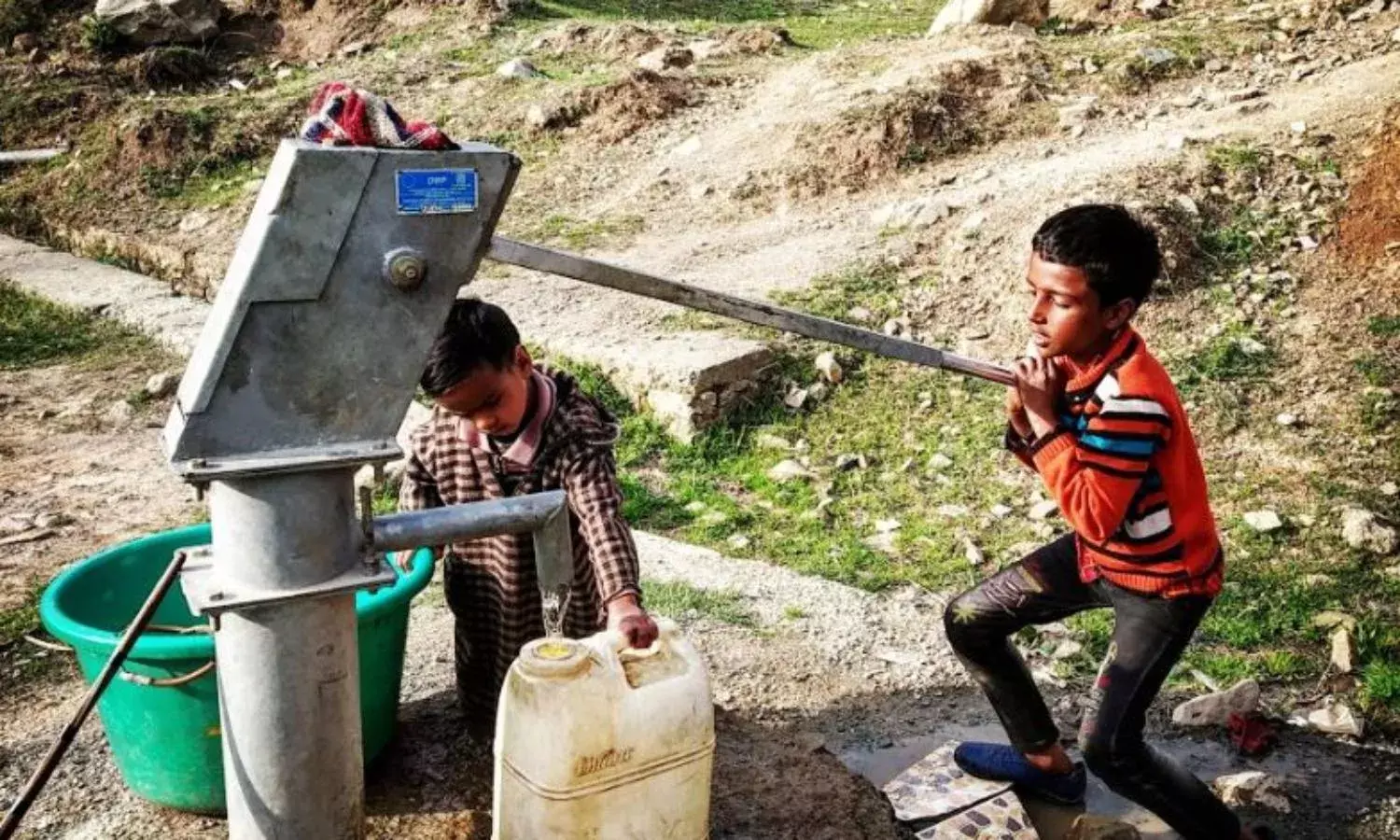Coronavirus? What’s That ask Kashmir’s Nomads
Life is a struggle

SRINAGAR: As the whole world takes precautions to fight the COVID19 pandemic, nomadic families in Kashmir’s foothills still don’t know much about the new coronavirus, as ‘no one reaches’ them to create awareness or provide care.
Around twenty families, living in the foothills of the Monghama-Nahir area in Tral, southern Kashmir, described how they are living their lives without basic amenities like water supply, electricity or lavatories.
A matter of grave concern is they have no idea about the deadly pandemic of COVID19, as no one has bothered to visit them.
Munshi Bakerwal said he has been listening to news about the pandemic from locals in nearby areas, but has no idea about where it has spread or any other information about it.
“We have no idea about the virus, but we have heard from others that we should stay inside our homes to avoid it. No one visits here to tell us the actual details,” he said.
He has seen people roaming around their area wearing masks and keeping distance. Sensing that something is wrong, they are staying cautious.
“We are stuck in our tents. We can’t move ahead of the current situation,” he added.
Another nomad, Zubair Ahmad, says that “other people might be getting day to day information as you say on television, but we can’t do it, as we have no television, in fact no power supply.”
Someone unknown to them, who Ahmad said “claimed to be an official”, had briefed them about the virus earlier and suggested they stay indoors to save themselves.
“Since then we are here without any work, and are busy rearing our livestock,” said Ahmad.
A group of nomads while discussing sheep grazing near their tents and some residential houses, say they have been living in the area permanently for a decade, but haven’t been provided any facilities till date.
Lacking electricity, water, sewerage and toilet blocks, these nomads face a lot of inconvenience even in normal times. Now they have no idea how to maintain their livelihood with the ongoing lockdown.
“We are without electricity since the day we started to live here. Poles and wires along with a transformer under a TATA scheme were given to us years back, but without making them functional for use, till date,” one nomad. “We have been left to God’s mercy.”
The women here travel miles from home to get water for their families, which gives them a tough time particularly in winters and when it rains.
Shareef Ahmad explains, “Our womenfolk have to go to the nearby school to fetch water for drinking, washing clothes and other purposes. This has been going on for many years, but no one pays us heed.”
He said that sanitation is the another issue in the area, as open defecation is prevalent in the absence of lavatory blocks.
“Under the MNREGA scheme, lavatory blocks are being given to all the areas, even where people could easily afford to construct them. But we have been excluded from this scheme as well,” he said.
The families here say they are suffering immensely under this lockdown, and demanded that basic amenities be provided to the area as soon as possible.
When contacted, additional deputy commissioner of the zone, Shabir Ahmad, said he had taken note and would be visiting the area soon to hear the people’s grievances.
All twenty families here have been living permanently in the upper reaches of the Monghama foothills, six kilometres only from the subdistrict headquarters in Tral. For them the problem is of daily livelihood, not the virus that has still to make its presence felt.
Cover photo BASHARAT RASHID: A nomad boy along with his mate pumps water from a handpump in the outskirts of Tral



